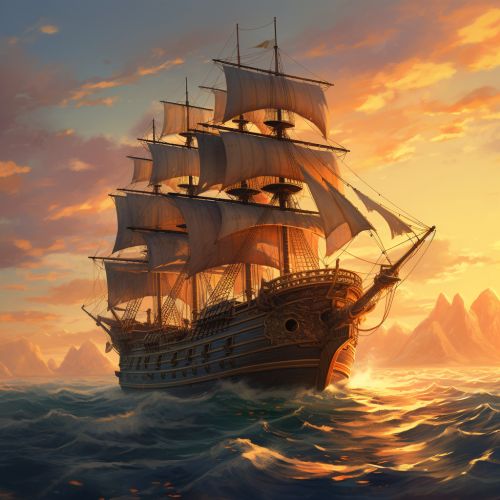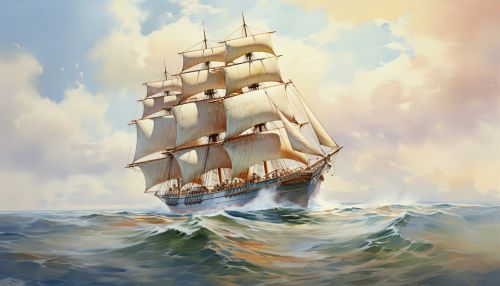Age of Exploration
Introduction
The Age of Exploration, also known as the Age of Discovery, was a period in history that witnessed the exploration of the world by European powers. This era, spanning from the 15th to the 17th century, was marked by extensive overseas exploration that resulted in the discovery of new lands, cultures, and trade routes. The Age of Exploration is considered a significant period in the history of geography and cartography, and it had profound impacts on the political, economic, and cultural landscapes of the time.


Causes
The Age of Exploration was driven by several factors. The primary reasons were the desire for new trade routes, the quest for knowledge, and the spread of Christianity.
Trade Routes
The search for new trade routes was primarily motivated by the lucrative spice trade. European powers, particularly Portugal and Spain, sought to bypass the traditional overland routes controlled by the Ottomans and establish direct maritime routes to the spice-producing regions of Asia. This quest led to the discovery of the Cape of Good Hope by Bartolomeu Dias in 1488 and the sea route to India by Vasco da Gama in 1498.
Quest for Knowledge
The Renaissance, a period of renewed interest in learning and knowledge, also played a crucial role in sparking the Age of Exploration. Explorers were driven by a thirst for knowledge and the desire to learn more about the world's geography, cultures, and natural phenomena. This era saw advancements in navigational tools like the astrolabe and the compass, which made long sea voyages possible.
Spread of Christianity
The Age of Exploration was also marked by the desire to spread Christianity. The Catholic Church, particularly through the Order of Christ, supported many explorations. Explorers like Christopher Columbus and Ferdinand Magellan were motivated by a religious zeal to convert indigenous populations to Christianity.
Major Explorations
The Age of Exploration witnessed several groundbreaking voyages that reshaped the world's understanding of geography.
Christopher Columbus
In 1492, Christopher Columbus, sponsored by the Spanish monarchs Ferdinand and Isabella, embarked on a voyage to find a westward route to Asia. Instead, he landed in the Bahamas in the Caribbean, marking the first contact between Europeans and the Americas.
Vasco da Gama
Vasco da Gama's voyage in 1498 marked the discovery of a sea route from Europe to India. This opened up direct trade with Asia, breaking the monopoly of the overland routes controlled by the Ottomans.
Ferdinand Magellan
Ferdinand Magellan's expedition from 1519 to 1522 resulted in the first circumnavigation of the Earth. Although Magellan himself did not complete the voyage, having been killed in the Philippines, his crew, led by Juan Sebastian Elcano, completed the journey, proving that the world was round.
Impacts
The Age of Exploration had far-reaching impacts, both positive and negative, on the world.
Economic Impacts
The discovery of new trade routes and lands led to the establishment of new trading networks and the expansion of European commerce. The influx of gold and silver from the Americas into Europe led to an era of economic prosperity known as the Price Revolution.
Cultural Impacts
The Age of Exploration led to the exchange of ideas, technologies, and commodities between Europe and the newly discovered lands. This cultural exchange, known as the Columbian Exchange, had profound impacts on the world, introducing new crops, animals, and diseases to different regions.
Negative Impacts
The Age of Exploration also had negative impacts, particularly on the indigenous populations of the Americas. The arrival of Europeans led to the spread of diseases like smallpox, which decimated indigenous populations. The era was also marked by the enslavement and exploitation of indigenous peoples.
Conclusion
The Age of Exploration was a pivotal period in world history that reshaped our understanding of the world and had far-reaching impacts on global trade, culture, and politics. Despite its negative aspects, it paved the way for the modern globalized world.
